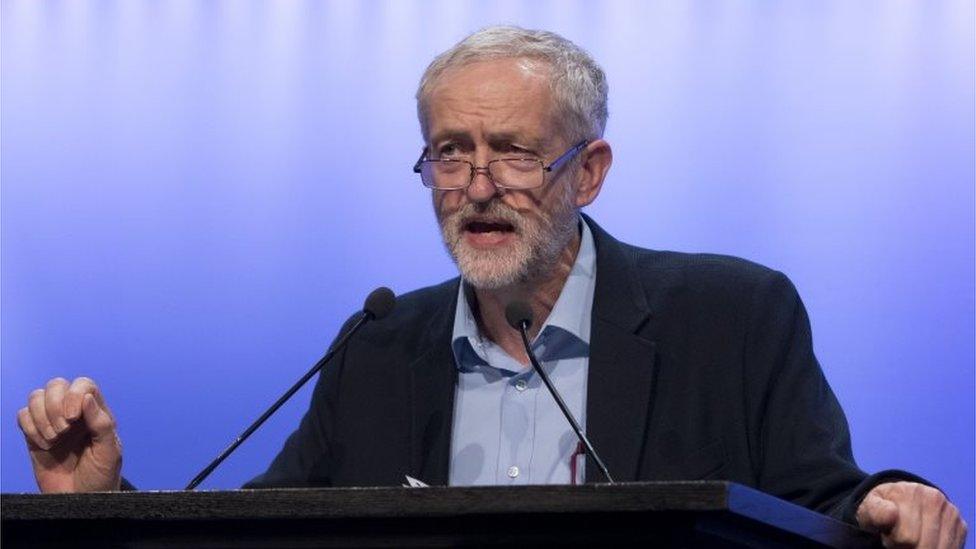Unions warn government over EU referendum support
- Published

GMB Union chief Paul Kenny warned that he could not recommend a Yes vote if protections were relaxed
The Government has been warned that it cannot rely upon the support of trade unions in the forthcoming EU referendum.
At the TUC Congress, delegates backed a statement warning the Prime Minister not to weaken workers rights as part of his renegotiation of the UK's membership of the EU.
The TUC has traditionally been pro-EU.
But it has now reserved its position until there's more clarity on the outcome of the renegotiation.
Most Unions have supported EU membership due to the protections for workers that have flowed from EU legislation.
They also point to foreign investment, based on the UK's access to the European market, that has boosted the economy and created jobs.
Greek turmoil
But in union circles, views on Europe have shifted in recent years.
Many criticise the role EU institutions have played in the turmoil that has engulfed the Greek economy.
They have also questioned the EU's appetite for international free trade deals like TTIP (the Transatlantic Trade and Investment Partnership), which they fear will help multinational companies but harm jobs and working conditions.
Now trade unions are warning that the government can not rely on their members to support a Yes vote in an EU referendum to stay in the union.
The General Secretary of the GMB Union Paul Kenny warned that he could not recommend a Yes vote if protections were watered down.
"If the Government drive us into a position where we have to say no, that is what we are going to have to do".
'Warnings'
Steve Turner, the Assistant General Secretary of the Unite Union, said that the biggest threat to working people wasn't Europe but the politics of the Tory Government.
"We hope that Cameron's efforts to weaken workers' rights will fail" he said, "but if they do not, we are issuing a warning to the Prime Minister - you will lose our members' votes to stay in the EU by worsening workers' rights."
The Government has indicated four areas where it wants changes: sovereignty, fairness, competitiveness and immigration.
48-hour week
But in a letter to the TUC's General Secretary Frances O'Grady, seen by the BBC, the Europe Minister David Lidington, indicated that the government was looking at the Working Time Directive, which caps working hours, and judgements from the European Court of Justice.
"With regard to the working time directive, the government wants to ensure that it promotes long-term, sustainable growth and labour market flexibility," he said.
"Our priorities are to retain the individual's right to opt-out of the 48-hour limit in weekly working time and to address problems caused by European Court Judgments on on-call time, compensatory rest and holiday pay."
The Working Time Directive mandates a maximum working week of 48 hours.
The UK negotiated an opt-out. But that has to be reviewed every four to five years.
Unions believe the government may be seeking to make the opt-out permanent.
Agency worker rights
It may also want to limit the impact of judgements from the European Court of Justice.
The Temporary Agency Workers Directive may also be in the Government's sights.
It gives agency workers similar rights to other staff after 12 weeks on the job.
But the so-called 'Swedish derogation' allows employment agencies to pay agency workers less than permanent staff doing the same job.
Unions claim employers organisations have lobbied the Government to make the derogation permanent.
Trade unions will be a powerful voice in the referendum campaign as they are directly in touch with more than 6 million workers.
But unions are divided on whether to back a yes vote now, giving the Prime Minister free reign in his negotiations with other EU member states.
For now the TUC is reserving its position on the referendum. It says that it will take stock of its position once the full results of the renegotiation and timetable for the referendum are known.
Follow John on Twitter: @JohnMoylanBBC
- Published15 September 2015

- Published15 September 2015

- Published15 September 2015
